At the Sufi ceremony of Zikr, we formed a circle around Fattah, who played guitar and sang. He taught us the simple dance movements and transporting chants. Holding hands, our thumbs all pointed left to facilitate an uninterrupted flow of energy around the circle. Fattah explained the meaning of each dance and translated the Arabic phrases for us. He invited us to sit down inside the circle if we grew tired. There we would experience the energy from the inside out.
For three dances, we chanted the simple phrases and danced the simple steps around Fattah. Dance number four included the phrase “La illa ha. Il Allah.” I was excited to learn this one. During many previous Zikrs, it had escaped my mastery. But I finally got it. “La illa ha il Allah.” While chanting these words we were required to drop our neighbors’ hands, spin slowly in place, with our individual hands held high. No sweat.
We came to the spin. “La illa ha. Ill Allah.” I uttered it perfectly. I sounded like a native speaker. But something was wrong with my feet. They hadn’t moved.
We repeated the sequence. This time I executed the spin flawlessly. My raised arms expressed the universality of the movement. I was at once a Christian parishioner raising my hands to receive the Holy Spirit, a Hare Krishna delighting in Krishna and a Sufi praising Allah. My spin was unsurpassable.
But something was wrong with my mouth. I was thinking Arabic, but I was saying “Fa La La La La.”
I asked Fattah to repeat the phrase for me. “La Illa Ha Il Allah, Dawn. Remember? We sang it in the last dance. It’s exactly the same.”
Fine. A second ago only a couple of people knew I was stuck. Now everybody knows.
We began again. I sang the phrase beautifully. I spun gracefully. But not simultaneously. Each time we approached the spin, I stiffened in concentration. The feet dutifully obeyed my commands. The mouth only managed la-la-la-la-Allah! The Allah was emphasized to prove to myself that I could utter at least one Arabic word while spinning.
I was frustrated. I was tense. I felt awkward. I knew for sure I had to learn this step. I knew I should be able to. I was proven wrong every time. In anticipation of the spin, I could no longer enjoy the rest of the dance. Mired in aversion and resistance. Closed off to the spirit of the music. This was my reality.
The more I resisted, the worse I felt. Just in the nick of time, my brain shut down.
I broke ranks, sat down in the middle of the circle, and created a new reality.
I hugged my knees and rested my forehead on them. With eyes closed, I let the melody of voices and guitar seep into my skin. I relaxed. I opened my eyes, and that’s when I saw the feet.
Everybody had them. They moved in and out of my field of vision like a slide show. Graceful feet, awkward feet, hesitant feet. My new reality was made entirely of feet. Some floated past on a pillow of air. Others dragged invisible 10-pound weights. Feet in Birkenstocks, feet in tennies, feet in sox.
The ability to spin in place while speaking Arabic was rendered moot in this feet-centric reality.
I raised my head to further explore the landscape of my new world. Faces floated by—moons orbiting around me.
I felt as though I were being honored in an ancient tribal ceremony. I inhabited a new reality, of my own creation. Where a few minutes earlier I had been a fish out of water, I was now the guest of honor. I was thrilled that they had all shown up to celebrate me.
One of the women returned my gaze as she danced by. Then her neighbor noticed me, smiled back in mid-chant, and floated away. It was contagious. Soon most of them smiled down at me as they danced and sung their way around the circle.
Some didn’t look at me at all, eyes closed in a self-induced trance. They drifted in and out of my vision, unaware of my invitation to dance. They were ballet soloists, focused inward. I noticed a second of disappointment that they did not play with me.
But I laughed with those who did, and our laughter harmonized with the music. They were celebrating around a campfire and I was the fire - sung to, smiled into, and danced around. But they weren’t celebrating me. Celebration was happening. The experience was impersonal and completely satisfying.
Stepping inside the circle, I had created a new reality. It was one small step in an evening, one giant step in a life. Bare attention made it possible. Feeling dense and awkward and knowing for sure that I had to learn the dance, I was headed down a road toward self-criticism. But without forming an opinion about them, I acknowledged the emotions I felt. Because I was being mindful of my feelings, I felt an opening. In that opening I saw the possibility that I did not know what I thought I knew for sure. In that split second of not-knowing, choices were presented to me. Suddenly, I had a choice in how to respond to the circumstance. I chose the path that led to celebration instead of self-recrimination.
Finding no resistance to hold them, the emotions passed right through me on their selfless journey through the atmosphere. Sitting down in the middle, I was still participating, but choosing a different way to dance. The circumstance that had threatened to deflate my mood had instead lifted my spirit.
My life is also my creation. Sometimes I’m hypnotized by emotions and habits. I act without seeing myself clearly. I drift away on my agitation, mistakenly thinking that something external caused it. That’s my reality.
In each situation, I can choose a different response, and create a new reality.
When I am mindful, the music of life invites me to dance. Sometimes I choose to boogie. And sometimes I dance by sitting it out.
For three dances, we chanted the simple phrases and danced the simple steps around Fattah. Dance number four included the phrase “La illa ha. Il Allah.” I was excited to learn this one. During many previous Zikrs, it had escaped my mastery. But I finally got it. “La illa ha il Allah.” While chanting these words we were required to drop our neighbors’ hands, spin slowly in place, with our individual hands held high. No sweat.
We came to the spin. “La illa ha. Ill Allah.” I uttered it perfectly. I sounded like a native speaker. But something was wrong with my feet. They hadn’t moved.
We repeated the sequence. This time I executed the spin flawlessly. My raised arms expressed the universality of the movement. I was at once a Christian parishioner raising my hands to receive the Holy Spirit, a Hare Krishna delighting in Krishna and a Sufi praising Allah. My spin was unsurpassable.
But something was wrong with my mouth. I was thinking Arabic, but I was saying “Fa La La La La.”
I asked Fattah to repeat the phrase for me. “La Illa Ha Il Allah, Dawn. Remember? We sang it in the last dance. It’s exactly the same.”
Fine. A second ago only a couple of people knew I was stuck. Now everybody knows.
We began again. I sang the phrase beautifully. I spun gracefully. But not simultaneously. Each time we approached the spin, I stiffened in concentration. The feet dutifully obeyed my commands. The mouth only managed la-la-la-la-Allah! The Allah was emphasized to prove to myself that I could utter at least one Arabic word while spinning.
I was frustrated. I was tense. I felt awkward. I knew for sure I had to learn this step. I knew I should be able to. I was proven wrong every time. In anticipation of the spin, I could no longer enjoy the rest of the dance. Mired in aversion and resistance. Closed off to the spirit of the music. This was my reality.
The more I resisted, the worse I felt. Just in the nick of time, my brain shut down.
I broke ranks, sat down in the middle of the circle, and created a new reality.
I hugged my knees and rested my forehead on them. With eyes closed, I let the melody of voices and guitar seep into my skin. I relaxed. I opened my eyes, and that’s when I saw the feet.
Everybody had them. They moved in and out of my field of vision like a slide show. Graceful feet, awkward feet, hesitant feet. My new reality was made entirely of feet. Some floated past on a pillow of air. Others dragged invisible 10-pound weights. Feet in Birkenstocks, feet in tennies, feet in sox.
The ability to spin in place while speaking Arabic was rendered moot in this feet-centric reality.
I raised my head to further explore the landscape of my new world. Faces floated by—moons orbiting around me.
I felt as though I were being honored in an ancient tribal ceremony. I inhabited a new reality, of my own creation. Where a few minutes earlier I had been a fish out of water, I was now the guest of honor. I was thrilled that they had all shown up to celebrate me.
One of the women returned my gaze as she danced by. Then her neighbor noticed me, smiled back in mid-chant, and floated away. It was contagious. Soon most of them smiled down at me as they danced and sung their way around the circle.
Some didn’t look at me at all, eyes closed in a self-induced trance. They drifted in and out of my vision, unaware of my invitation to dance. They were ballet soloists, focused inward. I noticed a second of disappointment that they did not play with me.
But I laughed with those who did, and our laughter harmonized with the music. They were celebrating around a campfire and I was the fire - sung to, smiled into, and danced around. But they weren’t celebrating me. Celebration was happening. The experience was impersonal and completely satisfying.
Stepping inside the circle, I had created a new reality. It was one small step in an evening, one giant step in a life. Bare attention made it possible. Feeling dense and awkward and knowing for sure that I had to learn the dance, I was headed down a road toward self-criticism. But without forming an opinion about them, I acknowledged the emotions I felt. Because I was being mindful of my feelings, I felt an opening. In that opening I saw the possibility that I did not know what I thought I knew for sure. In that split second of not-knowing, choices were presented to me. Suddenly, I had a choice in how to respond to the circumstance. I chose the path that led to celebration instead of self-recrimination.
Finding no resistance to hold them, the emotions passed right through me on their selfless journey through the atmosphere. Sitting down in the middle, I was still participating, but choosing a different way to dance. The circumstance that had threatened to deflate my mood had instead lifted my spirit.
My life is also my creation. Sometimes I’m hypnotized by emotions and habits. I act without seeing myself clearly. I drift away on my agitation, mistakenly thinking that something external caused it. That’s my reality.
In each situation, I can choose a different response, and create a new reality.
When I am mindful, the music of life invites me to dance. Sometimes I choose to boogie. And sometimes I dance by sitting it out.
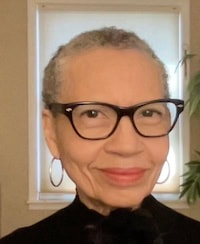

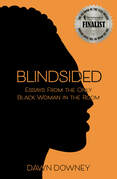
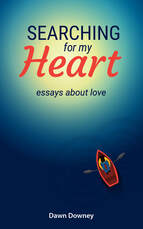
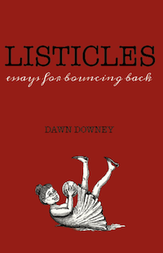
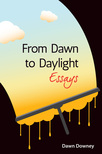

 RSS Feed
RSS Feed